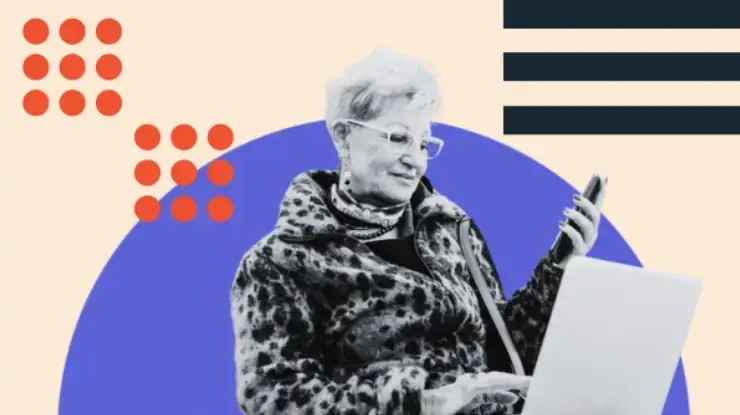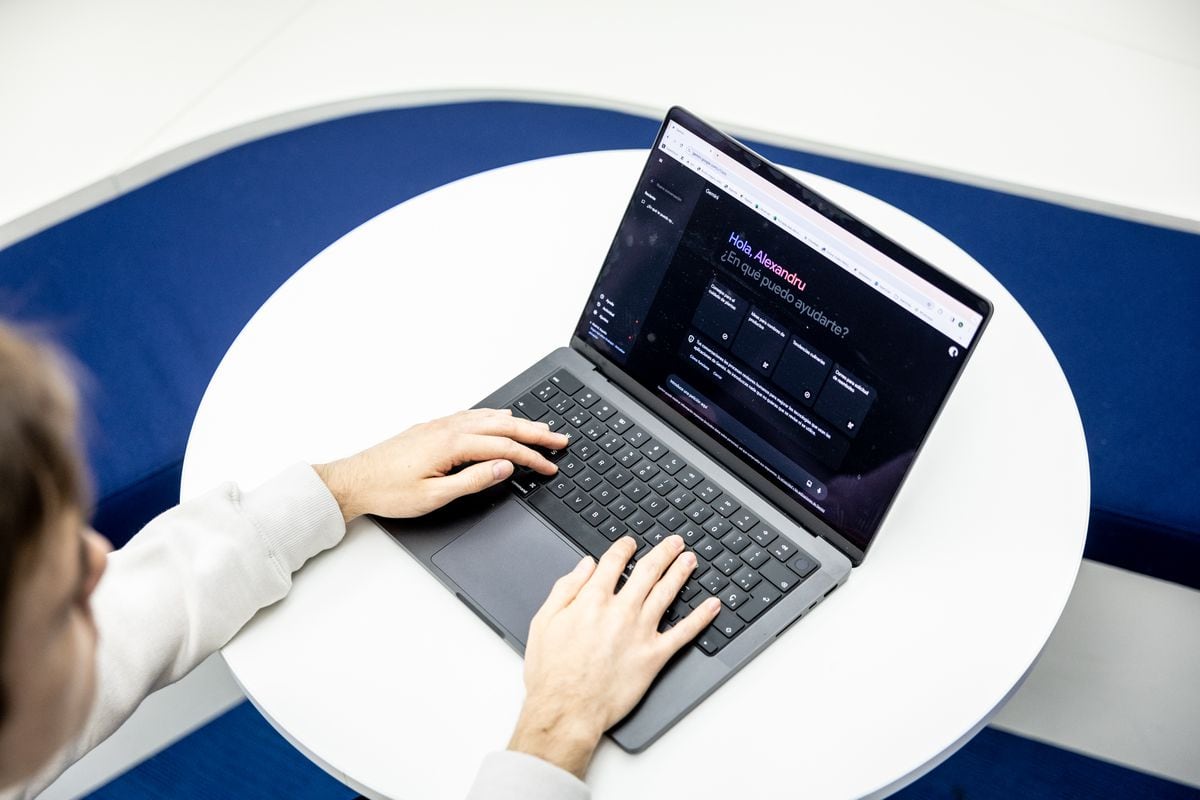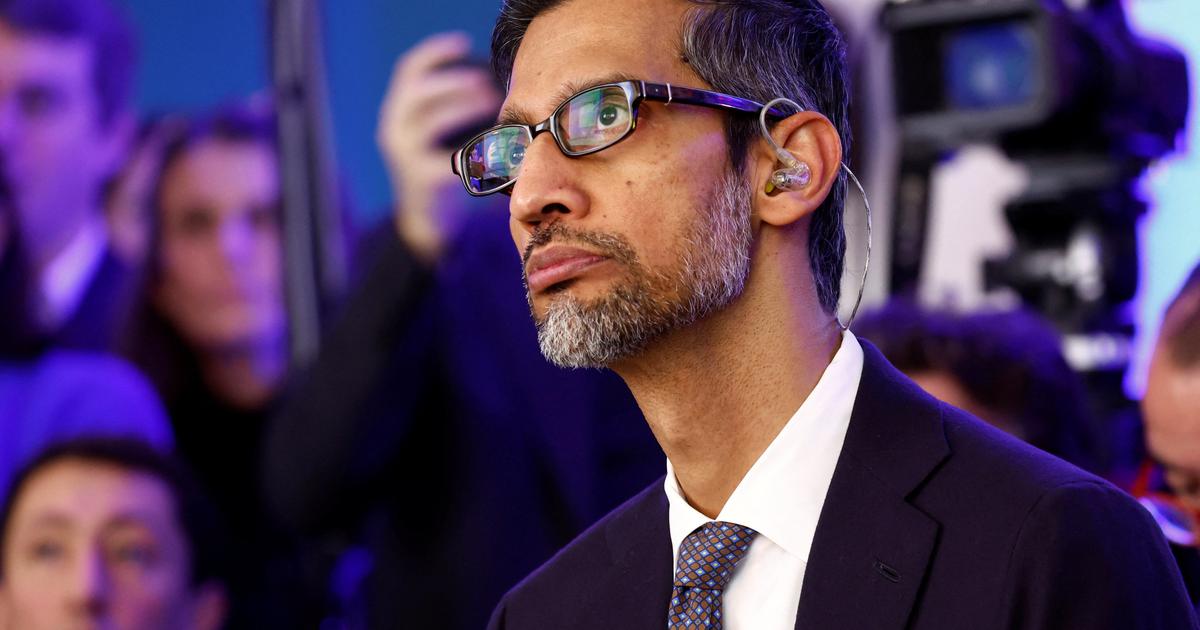Enlarge image
Google Search: Young people are now using TikTok to search for information
Photo: Mohssen Assanimoghaddam / dpa
Google has become one of the most valuable companies in the world through its search function, not undeservedly when you consider the unprecedented quality of the results.
To date, Google search is the beginning of many, many Internet tours, which is why Google is the most visited website on the planet.
Because it is often about products and services, Google Ads are so successful.
To put it in perspective, of Google's $256 billion in revenue in 2021, around $210 billion came from digital advertising, more than a quarter of all money spent on advertising worldwide.
Google search is perhaps the richest cash cow ever.
But there is a possibility that the era of classic search is dying out, despite all the success.
For some time now, the inadequacies of Google have become apparent, especially as a result of the developing digital society.
Many young people use TikTok to search for information, because there they are presented with short, entertaining answers to many questions in the form of a video clip: How do I fold T-shirts, which tablet is the best, where can you go on holiday as a vegan in January and and so on.
What older people google, of course, and then sometimes get lost in endless lists, Generation Z experiences as a video.
Even if you work professionally with the network, Google sometimes lags behind the needs, despite the quality that is still there.
For example, my frequent search task is to find content that I have seen or heard somewhere before.
This one interesting statistic - did I get this as a screenshot in one of my seven messengers?
Or as an email, or in a video presentation, or in an article on a US blog, or on Twitter, or...?
Google doesn't help much.
When it comes to product searches, Google has lost to Amazon, which is also increasingly penetrating the advertising market.
In 2021, Amazon was already able to earn 31 billion dollars for advertising.
The challenges show that despite its gigantic turnover, Google can no longer solve all digital search problems and no longer seems invincible when it comes to the daily battle for our search habits.
Now, of course, through artificial intelligence (AI) and in particular the ChatGPT model, even the super cash cow is in danger.
At least that's what Google itself believes. A media report says that ChatGPT triggered a "Code Red" on Google, the highest alert level.
The reason for this: Google is an excellent answering machine for all sorts of everyday questions.
But to get the best answers, if you look closely, you still have to type in very search engine specific phrases.
The journalist Emilia Smechowski demonstrated this in literary terms when, in spring 2022, she formulated a text about the time immediately after the birth of her child – exclusively in Google search phrases: “Milk shot when”, “Definition of a crying baby”, “Studs of nipple confusion”.
The consecutive searches that tell a short story of the failure of the Google results were particularly telling: "From when diaper size 2", "Which diapers for which age", "Which diapers for which weight".
Being good at Googling is a skill in its own right, and that says a lot about how far removed the search engine is from normal human communication in its current form.
That was reasonably acceptable as long as Google search yielded by far the best results.
more on the subject
Euphoria about ChatGPT: How good is the world's best chatbot really? A newsletter by Patrick Beuth, Netzwelt department
Software ChatGPT: The end of irrelevant artificial intelligenceA column by ChatGPT and Sascha Lobo
Artificial Intelligence: When the computer plans the Christmas menuBy Patrick Beuth and Theresa Locker
Enter ChatGPT, the talking artificial intelligence, which it must be emphasized is that it is a preliminary intermediate form and will be constantly improving.
It is a test application from the company OpenAI, which is now largely financed by Microsoft.
ChatGPT can answer human questions in a human way, and in an undoubtedly spectacular, namely human voice quality.
That's why a million users signed up for OpenAI in the first five days.
So far, ChatGPT has not been connected to the open internet, but has only been trained with content from the period up to 2021, which means that it does not contain any current information.
But that is likely to change in the near future.
It's also only a matter of time before the jump from GPT-3 (the current base of ChatGPT) to GPT-4, its successor.
This should be published in spring 2023 and put everything that has gone before in the shade.
Perhaps that's why Microsoft's CTO speaks of 2023 as "the most exciting AI year of all time".
Even if GPT-4 were just a little better and more up-to-date than its current predecessor, Google is right to be alarmed.
Then our usual search patterns in everyday life could shift, and these are exactly what makes Google money.
The increasingly noticeable weaknesses of the search result in part from the business model itself, because Google lives from not displaying a result, but always a list including ads.
A conversational AI technology is probably more difficult to market - because it tries to narrow down the result dialogically in case of doubt, in order not to get twelve million results in 0.34 seconds, but a meaningful answer.
Google's search engine sees the world as a list, an AI like ChatGPT looks for individual, good answers.
This technocultural difference makes Google appear as a machine and ChatGPT as a digital interlocutor.
And if something could displace the hitherto extremely powerful keyword search, it would be dialog-type search forms.
Because it is easier for users to get the information they want in normal, everyday language.
Above all, however, a new search intelligence is required that can respond even more closely to personal needs.
Due to the dialogical nature, there is a feedback channel for the search quality for the first time.
So far, you can't tell Google: Listen, the suggested restaurant has moved or the advertised page is outdated.
The results of the Google search are a one-way street, whereas the dialogue with an AI enables a comparison to be made as to whether personal expectations have actually been met.
And an AI can learn excellently from this.
advertisement
Sasha Lobo
Reality shock: Ten lessons from the present
Publisher: Kiepenheuer&Witsch
Number of pages: 400 pages
Publisher: Kiepenheuer&Witsch
Number of pages: 400 pages
Buy for €22.00
price inquiry time
12/28/2022 4:53 p.m
No guarantee
Order from Amazon
Order from Thalia
Order from Yourbook
Product reviews are purely editorial and independent.
Via the so-called affiliate links above, we usually receive a commission from the retailer when you make a purchase.
More information here
And here one can assume why a technology like ChatGPT can become so dangerous for the classic search: It is perceived as a kind of artificial person and interlocutor, not as a database.
This reduces the inhibitions to reveal very personal data, which in turn can improve the search results even more.
We know that from Alexa, for example.
Thanks to Amazon's assistant software, a surprising number of people suddenly had few problems letting a constantly listening »standing bug« into their lives.
The topics of conversation that Alexa, Siri and the other previous assistance programs can do something with are very limited compared to the horizon of ChatGPT.
Because ChatGPT remembers what you have said so far and also understands the content, the dialogues can be further refined - the answers become more specific.
A part of the conventional Google search that should not be underestimated will probably be taken over by a search IPA, i.e. an »Intelligent Personal Assistant«, which will be able to answer all information questions in a dialogue.
This not only corresponds to the common visions in science fiction films, presumably Google itself sees it that way.
As a result of the highest alert level, there are discussions about making the artificial conversational intelligence LaMDA, which has only been used internally by Google, also accessible to the public.
It is said to be superior to the current ChatGPT.
It only made headlines briefly in the summer of 2022, when a Google developer named Blake Lemoine was fired for claiming that LaMDA had developed its own consciousness.
Depending on how much danger Google sees itself in, 2023 could actually be the most exciting year in terms of AI - with an incipient duel between ChatGPT/OpenAI/Microsoft and LaMDA/Google for the dominance of digital answers to the questions of mankind.





/cloudfront-eu-central-1.images.arcpublishing.com/prisa/WXJUHSN7QZDSBEMDZPHM3A2NNE.jpg)

/cloudfront-eu-central-1.images.arcpublishing.com/prisa/Z7MKM645QBGTJOMIIEOGHFZOV4.jpg)